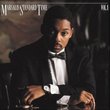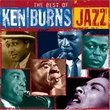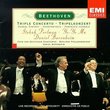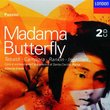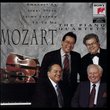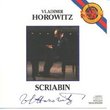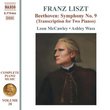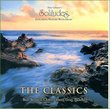| All Artists: Frederick Delius, Thomas Beecham, Royal Philharmonic Orchestra Title: Delius: Orchestral Works Members Wishing: 0 Total Copies: 0 Label: EMI Classics Original Release Date: 1/1/1956 Re-Release Date: 4/10/2001 Album Type: Original recording remastered Genre: Classical Styles: Opera & Classical Vocal, Forms & Genres, Symphonies, Historical Periods, Modern, 20th, & 21st Century, Romantic (c.1820-1910), Symphonies Number of Discs: 1 SwapaCD Credits: 1 UPCs: 724356755321, 724356755352 |
Search - Frederick Delius, Thomas Beecham, Royal Philharmonic Orchestra :: Delius: Orchestral Works
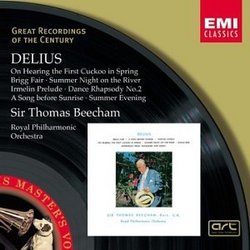 | Frederick Delius, Thomas Beecham, Royal Philharmonic Orchestra Delius: Orchestral Works Genre: Classical
|
Larger Image |
CD DetailsSimilarly Requested CDs
|
CD ReviewsBeecham's Autumnal Delius Thomas F. Bertonneau | Oswego, NY United States | 03/31/2002 (5 out of 5 stars) "With no composer was Sir Thomas Beecham more closely associated than with Frederick Delius: Beecham made his first 78RPM documentation of Delius in the middle 1920s just after the invention of the electrical process; he recorded Delius throughout the period of electrical stylus engraving, continued to do so in the "hi-fi" years of the monophonic long-playing record, and made what were probably the first stereo recordings of Delius in the late 1950s and early 1960s, for EMI. The EMI stereo recordings have rarely, if ever, been out of the catalogue. They appeared initially in the United States in the late 1960s on the Seraphim label, on two LPs. EMI reissued them as a two-CD boxed set in the middle 1980s, and the current, semi-budget edition compiles the best of the older two-CD anthology, reworking the balances just a bit, and making them available at a lower price than previously. The highlight of the program is the wonderful, autumnal performance of "Brigg Fair: An English Rhapsody," a work that Beecham committed to platters three times (in 1928, 1947, and, as here, in 1958). While the music of Delius does not absolutely demand stereo, it certainly benefits from it; the subtleties of orchestral color, the impression of depth so important to an evocation of landscape, the related representation of distance (as noted by Christopher Palmer in his study of the composer) - all of these become more vivid, and more vitally contribute to the living whole, in stereo. Let it be said that however accomplished conductors of later generations have been in their dedication to Delius, none has ever surpassed Beecham: the gentle rocking of the flute and harp in the opening bars of "Brigg Fair" sounds like the rolling countryside itself in warm pastels; the peroration in brass toward the end of the same work blazes for a moment before the music subsides back into its original quietness. The timing (15.51) is comparable with that of Beecham's pioneering 1928 performance (available on Naxos) and shows that the lambent atmosphere is not dependent on a retardation of the pace. The two "sketches," "On Hearing the First Cuckoo in Spring" and "Summer Night on the River," here receive their definitive recordings. (Only Barbirolli, also on EMI, comes close.) Beecham brings to life the two other miniatures, "A Song before Sunrise" and "Summer Evening," with the same deft magic; in the less characteristic "Dance Rhapsody No. 2" he knows how to mark the rhythms and does a more effective job than Eric Fenby did on a now deleted Unicorn CD. This is a splendid CD for those curious about Delius who might want an introduction to the autumnal realm. I can detect little difference in sound between this disc and its previous CD re-mastering for the boxed set. The original recordings represented the state of the art for their time and have always sounded as warm as Sir Thomas must have intended them to be." EXCELLENT TRANSFERS , BUT THIS GLASS IS ONLY HALF-FULL Mark E. Farrington | East Syracuse, NY | 02/01/2008 (3 out of 5 stars) " EMI's GREAT RECORDINGS OF THE CENTURY series has been mostly a boon to dyed-in-the-wool collectors...but not in this case. In the late 1980s, EMI released a two-disc set, BEECHAM CONDUCTS DELIUS: THE COMPLETE STEREO RECORDINGS. Then in 2001, this single disc was released - seemingly "Volume One" of new transfers of these recordings. (In this same series, Klemperer gets a 2-disc set for his Wagner excerpts; but apparently these Delius "ditties" only "rate" a single disc.) In any case, as of 2008 (seven years later), "Volume Two" has not appeared, and there is no sign that it ever WILL appear. This means that purchasers of this disc are left stranded without the stereo MARCHE CAPRICE, SONGS OF SUNSET, and the 2nd through 4th movements of the FLORIDA SUITE. Beecham's commercially recorded Delius can be divided into 3 broad categories: the pre-war 78s (1927-38); the post-war mono 78s & LPs (1946-56); and the stereo sessions of 1956-57. (You COULD divide the first category into "pre-London Phil" and "London Phil," but skip it.) Some of these works were recorded up to three times, i.e., in all three "eras." But in order to keep this review from nightmarish length, I will - with one exception - confine any comparisons to those works which were recorded in stereo. Delius' "amanuensis," the late Eric Fenby, always preferred Beecham's pre-war 78s for their greater freshness of feeling, and, often enough, it is true that "earlier is better." But with Beecham's Delius, the question is "HOW MUCH earlier?" Now, there is no denying the unique qualities of the pre-war 78s. But except for the comparatively lackluster FIRST CUKOO, I find the post-war "monos" as "freshly feelinged" as the pre-war 78s - with the added advantages of superior sound AND an often greater understanding of pacing. And in three instances, I even find the post-war monos superior to the pre-war 78s...Take, for example, (1) The 1946 (vs. the 1929) BRIGG FAIR. Delius himself knew and loved the 1929 record - which must make it "authoritative." (And I have to admit that, in his benchmark review of the Beecham-Delius recordings in WHILE SPRING AND SUMMER SANG, Lyndon Jenkins also prefers the 1929 hands down, so no doubt I'm the one who's "wrong.") Indeed, the 1929 is a more overtly Romantic - even "perfumed" - performance. But to my ears the 1946 coalesces far better; it makes the same emotional points, but seeming to do so while emerging from a more contemplative "quiet." (I dare to think I am on solid Delian ground, here; Eric Fenby, more than once, spoke of Delius' music as seeming to emerge from, and fade back into, silence.) The stereo version attempts to replicate this approach, but with less energy. A new listener would find it superb, but once the earlier ones are experienced, there's no going "back" (er, um, I mean "forward"). 2) The 1950 (vs. the 1936) OVER THE HILLS & FAR AWAY. Its slightly more leisurely pace and superior woodwind playing seem to better convey the Griegian, "misterioso" spiritual state to which this work aspires. The stereo version affords less energy and concentration; it is not even played as well as the 1950 version. Again, a new listener might be convinced, but only without experiencing the earlier ones. (3) The 1951 (vs. the 1935) IN A SUMMER GARDEN. The 1951 runs deeper and lingers a bit longer in the "garden" - although the '35 has an air of contemplative nonchalance and "emergence from silence" - similar to the '46 BRIGG FAIR - which is just as effective in its own right. Another confession: my preference goes against that of the late Eric Fenby, who decidedly preferred the 1935. (Beecham did not record IN A SUMMER GARDEN in stereo.) (For the pre-war 78s, the SOMM and DUTTON transfers are superior to NAXOS. And until recently, excellent transfers of the post-war "monos" were available from SONY, DUTTON, and NAXOS HISTORICAL. Any of them are worth tracking down.) Still, apart from the exquisite FIRST CUKOO and the stunning DANCE RHAPSODY NO. 2, the stereo re-makes of the post-war "monos" tend to prove Fenby right: they come off as comparatively less convincing and "freshly feelinged." (This is especially true of BRIGG FAIR and OVER THE HILLS, as I said.) And yet, about half the "stereos" are essential - not only for CUKOO & DR2, but for the FLORIDA SUITE; SLEIGH RIDE; the FENNIMORE & GERDA Intermezzo; and SONGS OF SUNSET. (Beecham made no commercial, post-war "monos" of the F & G INTERMEZZO, SLEIGH RIDE or the FLORIDA SUITE; but a posthumously released, incomplete SOS of 1946 is available from SOMM.) To obtain these six essential recordings "in one place," you must track down a copy of the late '80s stereo set- which is actually much better transferred than most of EMI's re-issues from that period. (The FLORIDA SUITE is a "once-only" recording for Sir Tommy - apart from his 1938 "LA CALINDA," the dance which forms the second half of FLORIDA's first movement and which also pops up in the opera KOANGA.) IF EMI ever releases a newly transferred "Volume 2" to compliment THIS disc, or if this set were redone as the "2-fer" it should have been in the first place, then they would be essential to Delians for the six works just mentioned. Until then...as a Delian, I consider this glass to be half-full." Inimitable David Saemann | 08/25/2008 (5 out of 5 stars) "This is a release of considerable historic importance. Sir Thomas Beecham was Delius's greatest champion, without whom this music might have languished without attention. Beecham conducting Delius was always a tour de force, never more so than here with his Royal Philharmonic, an orchestra whose attention to the subtleties of symphonic expression never has been surpassed. Unfortunately, only the first movement of the Florida Suite has been given, leading me to believe that the whole work is not to be given a full remastering. I have the Seraphim LP of the complete piece, and am convinced it is one of the unheralded masterpieces of the 19th Century--and Beecham's advocacy of it could not be improved upon. Luckily, there are fine digital versions of the work by Boughton, Lloyd-Jones, and Mackerras. As for the rest of the album, it is Beecham in clover. I have some favorite moments. The Dance Rhapsody No. 2 is inexpressively sprightly, and the Irmelin Prelude is even better than Barbirolli's fine version. Sleighride is appropriately wistful, and On Hearing the First Cuckoo in Spring is effortlessly evocative. The sound engineering, from 1956-7, is generally effective in portraying the orchestra's textures, although I did notice one or two cases when the tuttis were compressed. If you've never heard Delius's music, or if you're looking for a good way to add to your Beecham holdings, this must be an essential disc."
|

 Track Listings (10) - Disc #1
Track Listings (10) - Disc #1
